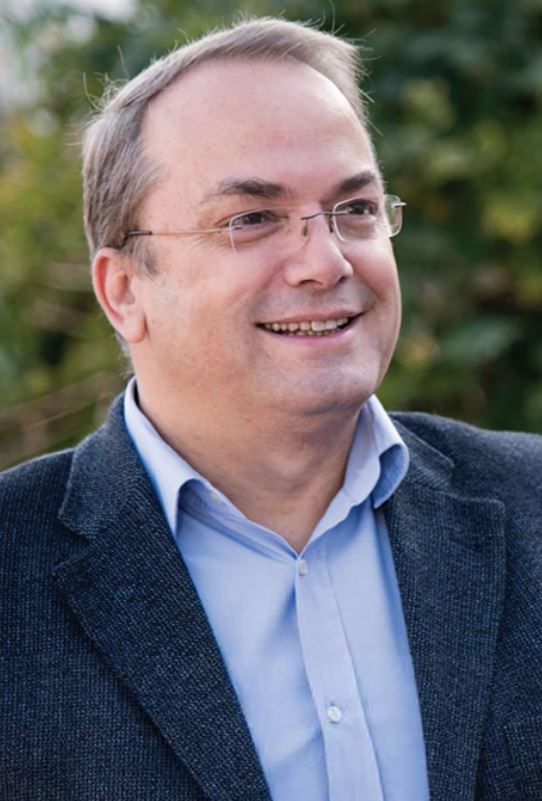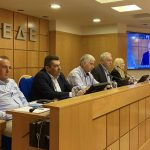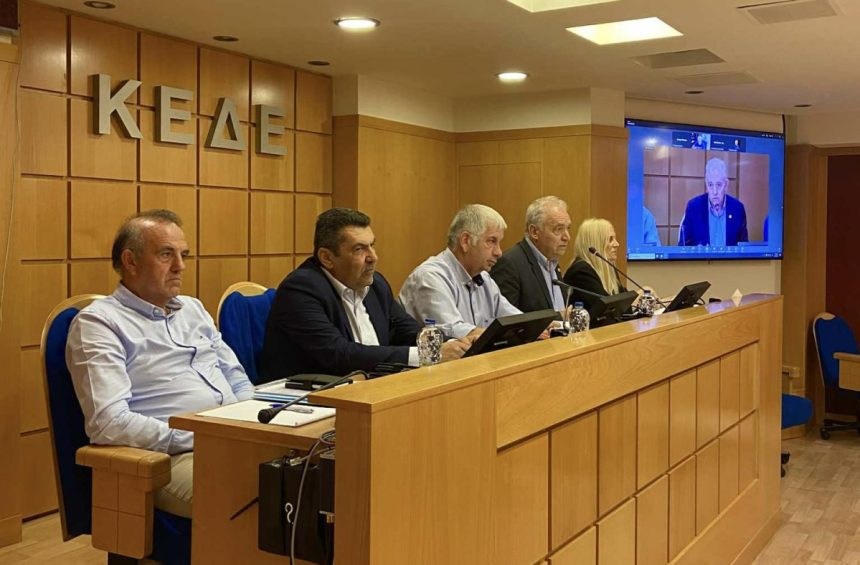The Climate Crisis is not a distant scenario – it is here and now. And on the front line for the protection of human life, equality and the resilience of local societies are the Municipalities. Local Government, with the Central Union of Municipalities of Greece (KEDE) at the helm, is strengthening its action and voice against natural disasters that disproportionately affect vulnerable groups and communities.
The recent meeting of the Civil Protection Committee of KEDE highlighted that climate justice involves strengthening local plans, inclusion and cooperation with civil society.
The Chairman of the Committee, Vlassis Siomos, opened the discussion with a proposal for a thematic conference, in order to create a stable institution for the exchange of experiences, know-how and good practices. He proposed a space for dialogue and solutions, which respects the uniqueness of each local community and the different needs of its people.
Professor and president of OASP, Efthymios Lekkas, placed particular emphasis on the need for specialized civil protection plans for each Municipality, depending on the specificities of the area and the vulnerable groups it hosts – from the elderly and children to people with disabilities and communities with a low socioeconomic background.
Support to Municipalities for Socially Fair Civil Protection
The First Vice President of KEDE and Mayor of Vari-Voula-Vouliagmeni, Grigoris Konstantelos, requested immediate funding for the development of civil protection plans by specialized bodies and universities, so that no Municipality – no matter how small – is left behind. At the same time, he focused on the training of executives and certified operators, underlining the need for equal access to technical means and human resources.
From Brussels, the Secretary General of KEDE, participating in the Summit of the European Committee of the Regions, stressed: “Civil Protection is a top priority issue for KEDE and for the European Union. The protection of human life, natural resources and social cohesion requires a common strategy and cooperation networks.”
The need for a stable communication network between KEDE and PED emerged as a key pillar for effective and socially fair risk management, with the aim of promoting:
- Local needs and problems
- Good practices and successful applications
- Common interpretation and implementation of new laws, such as the Climate Law and Urban Resilience Plans
Municipalities as Guarantors of Protection and Inclusion
A special discussion took place on the controversial issue of land clearing , where ambiguities and difficulties were highlighted – especially for vulnerable citizens and groups that are unable to respond financially or technically. KEDE pointed out that Municipalities should not be turned into “recipients of responsibility” without the corresponding resources and means.
The Commission proposed a package of 11 measures , with proposals such as:
- Digital database of plots with geospatial characteristics
- Special funding for biomass management
- Training of local government officials and establishment of special Civil Protection Departments
- Mandatory declaration of cleaning and waste management via the akatharista.apps.gov.gr platform
Civil Protection is Everyone’s Concern
The meeting also highlighted the need to strengthen preventive infrastructure projects , with maintenance of stormwater networks, development of flood plans and updating plans to deal with extreme weather phenomena – all based on accessibility, safety and inclusion.
KEDE demonstrates in practice that local government is not just a manager, but a protector of social cohesion and equality in a rapidly changing world. In an era where the impacts of the Climate Crisis disproportionately affect the weakest, Municipalities are called upon – and are responding – with responsibility, vision and solidarity.












